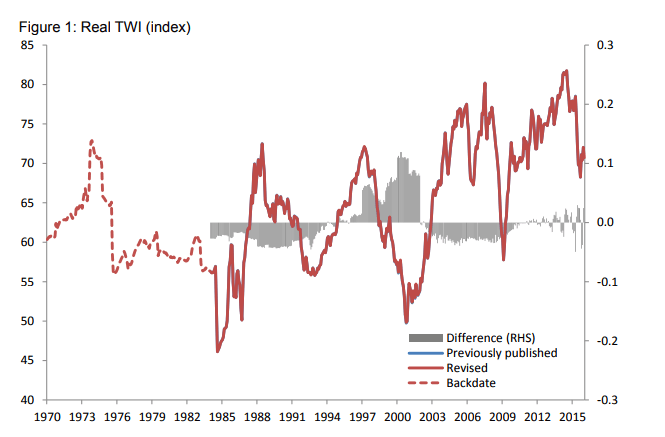
Running a business is always a gamble. You never know if your business idea will fly or fall flat until you give it a shot.
The risk is pretty much inevitable, but you can avoid failing altogether when you look at the trends of what have worked, or what didn’t.
Here’s a list of some business ideas that have proven unsuccessful in Singapore, so you can save yourself from failing as well.
Contents
1. On-demand Laundry Services

The downward spiral of homegrown startup honestbee began with the pause of its laundry service in Singapore. While their failure stems more than just their laundry business, it gives an idea of which of its services is not feasible.
Beyond honestbee, there are plenty of other on-demand laundry services in Singapore such as 24/7 laundry lockers WashBox24 and MyLockerLaundry.
The key factors for the uptake of such services are the price and location. If it’s expensive, consumers would rather wash their own laundry or go for a cheaper laundry option.
Meanwhile, a good location is all about convenience. If it’s nearby to a customer’s home or workplace, the likelihood of them engaging such services is higher.
However, it’s also noteworthy that almost every household in Singapore owns a washing machine and thus does their own laundry. Unless the fabric requires special care like dry cleaning, it’s safe to say that the demand for laundry services is low in Singapore.
2. Bike/E-Scooter-Sharing

It’s safe to say that the heyday for bike-sharing here is now over, with the exit of multiple bike-sharing firms such as Gbikes, oBike, Ofo, Mobike, ShareBikeSG as a testament to this.
The industry’s decline is in sharp contrast to its promising start, with Ofo and oBike initially raising millions of dollars from investors and expanding quickly to other markets.
However, issues such as indiscriminate parking by users and abuse of the bicycles has put the brakes on these companies’ growth.
The abrupt exit by oBike last June, which left many users in Singapore scrambling for their deposits to this day, tarnished the troubled industry further.
For e-scooter sharing, the recent ban of e-scooters on footpaths due to the safety hazards it poses have sparked a wave of resentment, especially among those in the food delivery sector.
Retailers were hit hard by the e-scooter ban — they are left high and dry, stuck with stockpile and money invested in certification for devices. One retailer, Mobot, said that it has about 3,000 e-scooters worth S$1.5 million that it suddenly cannot sell.
Firms providing e-scooter tours were also affected by the footpath ban, even causing one operator to close.
Regardless, since Singapore’s transportation system is efficient and well-connected, bicycle and e-scooter-sharing are never seen as a ‘need’ that helps to solve a pressing pain point for users.
Granted, it could be useful for students and staff in large campuses, or blue-collar workers to travel to more inaccessible places like industrial areas and dormitories.
However, it is not comprehensively beneficial for all group of commuters so do they really count as an ‘urban transport solution’ for your everyday needs?
Unlike booking cars for long-distance rides, bicycle and e-scooter sharing only bridge first- and last-mile gaps such as commuting to a nearby MRT station.
That said, their usage is smaller in scale when compared to other transport options. It’s no surprise then why bicycle and e-scooter sharing services pale in comparison to the relatively successful ride-hailing services in Singapore.
3. Food Delivery

Food delivery is undoubtedly thriving in Singapore as our appetite for convenience increases.
When honestbee halted its grocery delivery arm last year, it cited “stiff competition” in the groceries markets in Singapore as it faced competition from the likes of Cold Storage, NTUC and RedMart.
It ended up focusing on its core grocery business to reduce business operating costs. The same reason can easily be said as to why it ceased its food delivery services.
The reality is that it’s hard for new players to rival the ‘big three’ (namely GrabFood, Deliveroo, Foodpanda) unless they have a unique proposition. Even so, it won’t be easy to sustain the business.
To date, many niche food delivery players have exited the market.
Examples of which include Plum, which dispatches gourmet food at cheaper prices; Porterfetch which satisfies late-night hunger pangs with after-hours delivery; and Fastbee which delivers hawker food to workers in ‘ulu’ (remote) areas such as industrial and business parks in the West.
Fastbee in particular, adopts a unique model whereby it allows users to place lunch orders via its mobile app. These meals will then be delivered to designated vending machines for self-collection.
The menu is specially curated, with food blogger-featured dishes such as the Hainanese Scissors Curry Rice and Thaksin Beef Noodles.
However, people weren’t used to the vending machine concept and their lack of promo codes rollout discouraged users from trying out the service.
The problem is that it didn’t have a “deep warchest” to do so, or launch extensive marketing efforts, which in hindsight, caused them a great downfall.
It had difficulty raising funds to support its growth, and even after scaling down, they found it hard to hold the financial fort.
Its monetisation strategy also leaves much to be desired as it only relies on a low S$1.50 delivery fee as its main source of income. Unlike most food delivery companies, it does not take a cut from hawkers or impose a minimum order requirement.
While it relied on aggregating orders and eliminating point-to-point deliveries to stay lean and keep costs down, the start-up clearly required economies of scale to turn profitable.
4. Peer-to-peer Errands Services

Time is money, so it’s no surprise that people want to make money off people who simply don’t have time on their hands to run errands on their behalf.
Many startups in Singapore have tapped on this business idea: FlagAHero, TaskAmigo, TaskIsland and Taskporter, just to name a few.
On these portals, users can post errands and in turn, job seekers or runners will bid for the jobs and help you complete them. The errands could be as simple as helping to deliver something, or assembling a furniture.
These platforms will then take a cut from each successful job.
The problem for such concepts is that Singapore might be too small a market for it to work. For this model, one would need a sizeable market of customers with high disposable income and little options of cheap labour.
Demand was also pretty low for people to sign up as runners. For simple, menial tasks, posters typically place a low price for the job.
This doesn’t create any monetary incentive for them to take up the offer, and even if they do, you cannot expect ‘high quality’ work in return for it. This creates a vicious cycle in which the platform will generate unhappy customers when jobs are not taken up or not done right.
5. Powerbank Rental Services

Singapore has one of the highest smartphone penetration rates, and it’s evident that we can’t live without our phones — so much so that the term ‘nomophobia’ (no mobile phobia) has been coined.
Banking on this complex, Singapore startup PowerNow (previously known as NOMO prior to acquisition) started up a powerbank-sharing service to allay users’ anxiety when their phone battery falls lower than a certain percentage.
Their pay-per-use business idea is simple: rent a powerbank (comes with charging cables) for only $1/day and you can return it at any one of their locations at the end of the day.
But is there a real demand for such services? Many people already own powerbanks, and they are light enough to bring along when you’re out. It’s pretty fuss-free, you can even slip it into pockets if you’re not bringing a bag along.
In the event that you didn’t bring your powerbank out, we tend to simply borrow one from our friends.
Alternatively, there are existing cool technologies that actually make powerbanks redundant such as charging phone cases and Huawei’s reverse wireless charging or Samsung’s Wireless PowerShare.
While the rental fees are low, the other important consideration is the location of these powerbank rental sites.
PowerNow isn’t clear on its availability, but it generally listed its availability: transportation hubs, shopping malls, F&B outlets, entertainment joints, event spaces, tourist attraction spots and medical centres.
It needs to be readily available islandwide because there is no way that one is willing to travel someplace else just to keep their phone ‘alive’. Most likely, they will just bite the bullet and survive the rest of the day with no phone.
[“source=vulcanpost”]














































